 / Research Result
/ Research Result
Press Release
We are disseminating the remarkable research results from Our institute to everyone as a press release from the Organization.
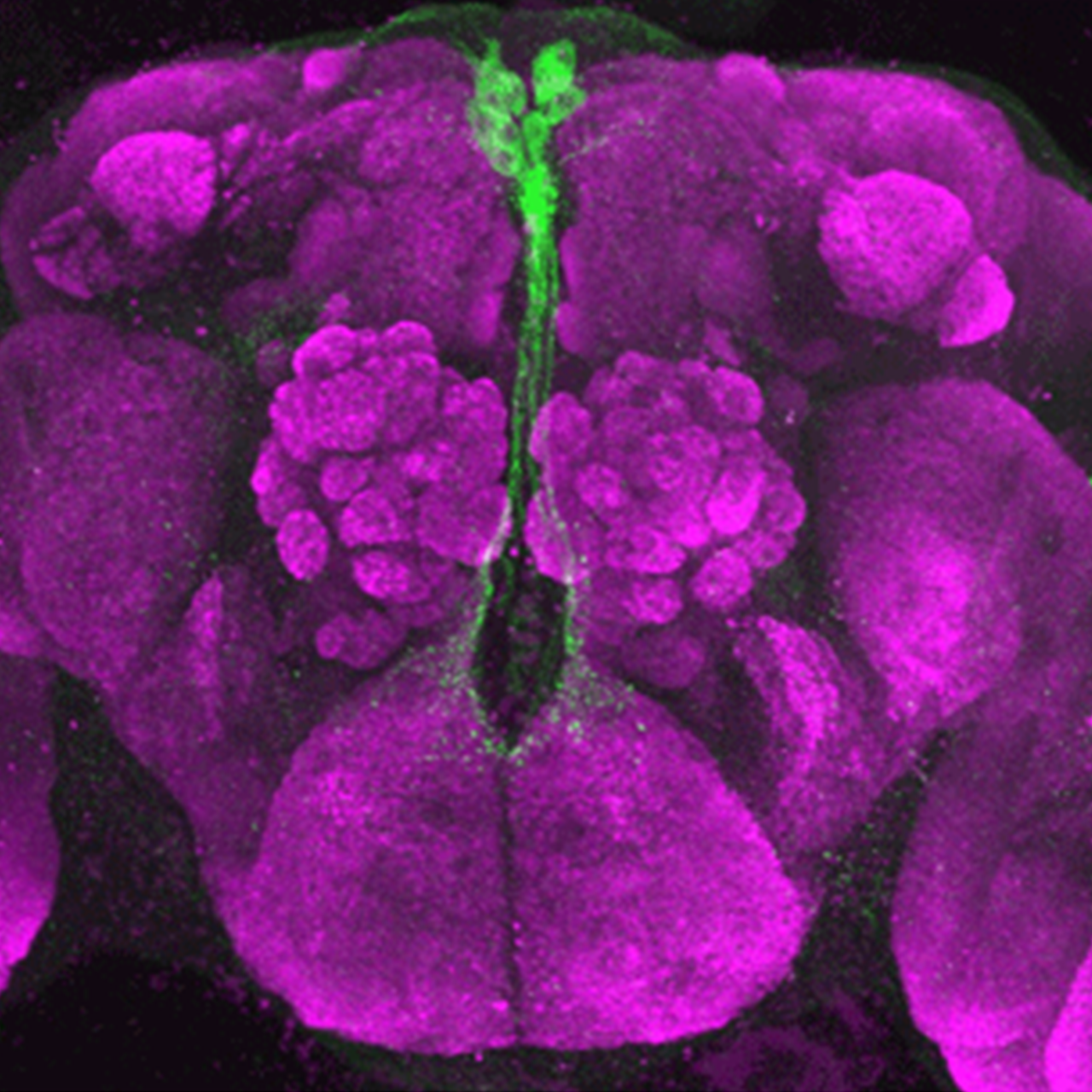
August 18, 2025
First transfer of behavior between species through single gene manipulation
Scientists strengthen brain cell connections to enable gift-giving courtship behavior in fruit flies.
Researchers in Japan have genetically transferred a unique courtship behavior from one fruit fly species to another. By turning on a single gene in insulin-producing neurons, the team successfully made a species of fruit fly (Drosophila melanogaster) perform a gift-giving ritual it had never done before. The study, published in the journal Science, represents the first example of manipulating a single gene to create new neural connections and transfer behavior between species.
In nature, most male fruit flies court mates by rapidly vibrating their wings to create sound patterns or “courtship songs." However, Drosophila subobscura has evolved a very different strategy: males regurgitate food and offer it as a gift to females during courtship. This behavior does not exist in closely related species such as D. melanogaster.
These two fruit fly species diverged about 30-35 million years ago. Both have a gene called “fruitless” or fru that controls courtship behavior in males, but they use different strategies?one species sings and the other gives gifts. The researchers found the reason for this difference: in gift-giving flies (D. subobscura) insulin-producing neurons are connected to the courtship control center in the brain, while in singing flies (D. melanogaster) these cells remain disconnected.
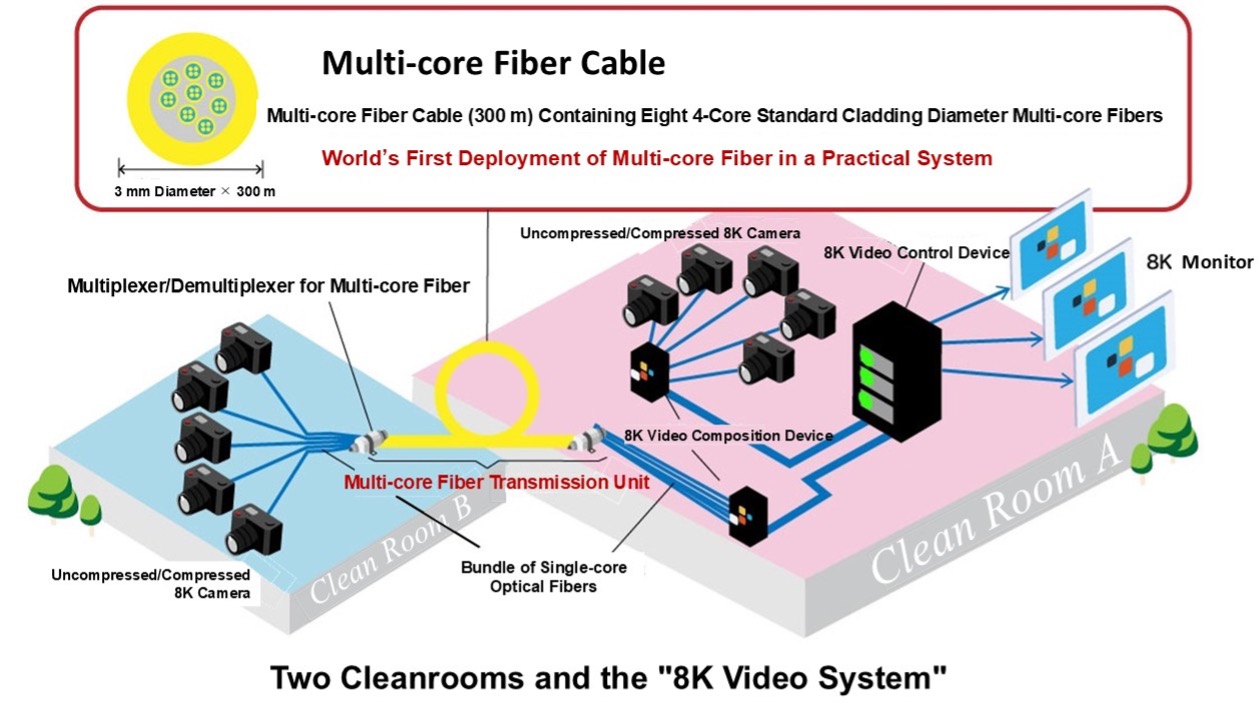
June 24, 2025(Japanese version released on March 27, 2025)
World’s First Implementation of a 4-Core Standard Cladding Diameter Multi-Core Fiber Transmission Unit in a Real System Handling Uncompressed 8K Video
The National Institute of Information and Communications Technology (NICT, President: TOKUDA Hideyuki Ph.D.) the Advanced ICT Research Institute, ASTRODESIGN, Inc. (President and CEO: NANBA Toyoaki), and Fujikura Ltd. (Director, President and CEO: OKADA Naoki) have developed a multi-core fiber cable consisting of eight 4-core, standard cladding diameter multi-core fibers, and they have successfully implemented it for the first time as an ultrahigh-capacity data transmission unit in a real system handling uncompressed 8K video.
In an uncompressed 8K video system, approximately 70 Gbps of data must be transmitted per video stream, requiring one single-core single-mode fiber for each uncompressed 8K camera. The developed multi-core fiber cable contains a total of eight standard cladding diameter (125 μm) single-mode 4-core multi-core fibers of two different types within a 3 mm diameter cable, which is equivalent to the 32 single-core single-mode fibers that are conventionally used in uncompressed 8K video systems.
In this implementation, by introducing a transmission unit that utilizes the multi-core fiber cable, we successfully achieved stable system operation by transmitting high-volume video data from multiple 8K cameras installed in a cleanroom, through limited-capacity information conduits and building interior spaces, over 300 m to an 8K video composition device located in a separate building.
This achievement enables the deployment of systems requiring high-capacity data transmission, such as uncompressed 8K video systems, even in cases in which conventional installation was difficult owing to limited space in information conduits or wiring pathways within or between buildings.
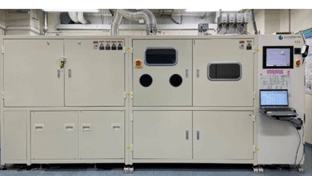
May 20, 2025
Realization of Controlled n-Type Doping of β-Ga2O3 Homoepitaxial Layers via a Proprietary MOVPE
Key Technology for Mass-Production of Next-Generation Power Devices
A research group led by Prof. Yoshinao Kumagai of Tokyo University of Agriculture and Technology, in collaboration with Mr. Junya Yoshinaga of TAIYO NIPPON SANSO CORPORATION, Assistant Prof. Shogo Sasaki of Nara Women’s University, Prof. Takeyoshi Onuma of Kogakuin University, Prof. Masataka Higashiwaki of Osaka Metropolitan University / National Institute of Information and Communications Technology, and Dr. Yuzaburo Ban of TAIYO NIPPON SANSO ATI CORPORATION, has successfully developed a technique for precise control of n-type conductivity in high-speed growth of β-Ga2O3 homoepitaxial layers using their proprietary low-pressure hot-wall MOVPE method.
β-Ga2O3 has been attracting attention as a next-generation semiconductor material for power devices that enable efficient power control and conversion. In the present study, non-toxic and non-explosive tetramethylsilane (TMSi) gas was employed for the first time as the Si dopant source, and by supplying it together with trimethylgallium (TMGa) and O2, precursors for gallium and oxygen, respectively, Si-doped β-Ga2O3 homoepitaxial layers were grown with conductivity (Si concentration) precisely controlled over a wide range (Further details can be found in the published article). This achievement has made it possible to fabricate wafers with thick homoepitaxial layers having controlled n-type conductivity by the MOVPE method, and is expected to accelerate the development of power devices.
This work was supported by MIC under a grant entitled "R&D of ICT Priority Technology (JPMI00316): Next-Generation Energy-Efficient Semiconductor Development and Demonstration Project (1st and 2nd periods) (in collaboration with MOEJ)".
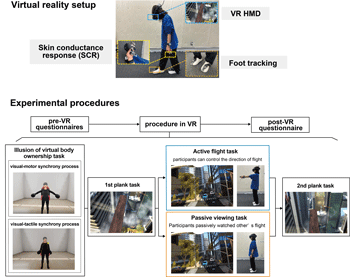
May 14, 2025
VR Flight Experience Reduces Fear of Heights by Action-Based Prediction of Safety
- A new approach to fear reduction without repeated exposure -
A research group led by FUJINO Misako and HARUNO Masahiko at the National Institute of Information and Communications Technology (NICT, President: TOKUDA Hideyuki Ph.D.), has demonstrated that experiencing active flight in VR allows individuals to predict that they can transition to a safe state even if they fall from a height, thereby reducing fear responses. This discovery challenges the traditional understanding that fear extinction necessarily requires repeated exposure to fear-inducing stimuli.
In this study, the researchers compared a group of participants who actively experienced low-altitude VR flight (Flight Group) with a control group who passively watched recordings of the flight experience. The Flight Group showed significantly greater reductions in both physiological (skin conductance response, SCR) and subjective (self-reported fear score, SFS) fear responses when walking on a virtual plank at high altitude compared to the Control Group. Furthermore, among the Flight Group participants, those who more strongly felt "I can fly, so falling is not dangerous" exhibited a greater reduction in fear responses.
These results suggest that "action-based prediction" can reduce fear responses without relying on repeated exposure, potentially offering a new approach to fear extinction.
The findings were published online on May 13, 2025, in the Proceedings of the National Academy of Sciences (PNAS).

April 23, 2025
Facial Expressions of Avatars Promote Risky Decision-Making
- The amygdala plays a key role in driving increased risk-taking -
A research team led by Dr. TANAKA Toshiko and Dr. HARUNO Masahiko at the National Institute of Information and Communications Technology (NICT, President: TOKUDA Hideyuki Ph.D.), investigated how avatar-mediated communication affects human decision-making. They discovered that participants were more likely to take risks when facial expressions (such as admiration or contempt) were displayed by avatars than when the same expressions were shown on real human faces. This increase in risk-taking was found to result from a more favorable valuation of the "uncertainty" of facial feedback in the avatar condition. Furthermore, fMRI analysis revealed that this valuation of uncertainty depends on activity in the amygdala.
These results offer important insights into how avatar-based social communication, such as in virtual and augmented reality, can affect human decision-making, and highlight the amygdala's critical role in this process. The findings were published in the April 22, 2025 issue of the journal PLOS Biology, which features high-impact research in the life sciences.
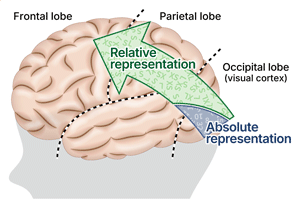
March 25, 2025
Uncovering the Brain’s Flexible Mechanisms for Representing Diverse Numbers
- Providing evidence for the hierarchical representation of relative numerical magnitudes in the human brain -
The National Institute of Information and Communications Technology (NICT, President: TOKUDA Hideyuki, Ph.D.) has revealed, through fMRI-based brain activity analysis, that multiple regions in the human cerebral cortex flexibly represent numerical quantity. This finding comes from research by HAYASHI Masamichi (Researcher (Tenure-Track)) at Center for Information and Neural Networks (CiNet), part of NICT’s Advanced ICT Research Institute, in collaboration with the University of Tokyo’s graduate student KIDO Teruaki (NICT cooperative visiting researcher), and Prof. YOTSUMOTO Yuko.
Although certain brain areas are known to respond to numerical quantity, this study expands that understanding by showing that some regions respond to relative quantity (e.g., “extra-small,” “small,” “large,” and “extra-large”) rather than absolute quantity (i.e., specific quantity). Moreover, these context-dependent, relative representations become more pronounced along the pathway from the parietal to the frontal lobe.
These results highlight the flexible nature of numerical quantity processing in the brain, and they are expected to advance our understanding of how the brain handles other types of “magnitude” concepts, including time and size.
This work was published in the journal “Nature Communications” on January 6, 2025.
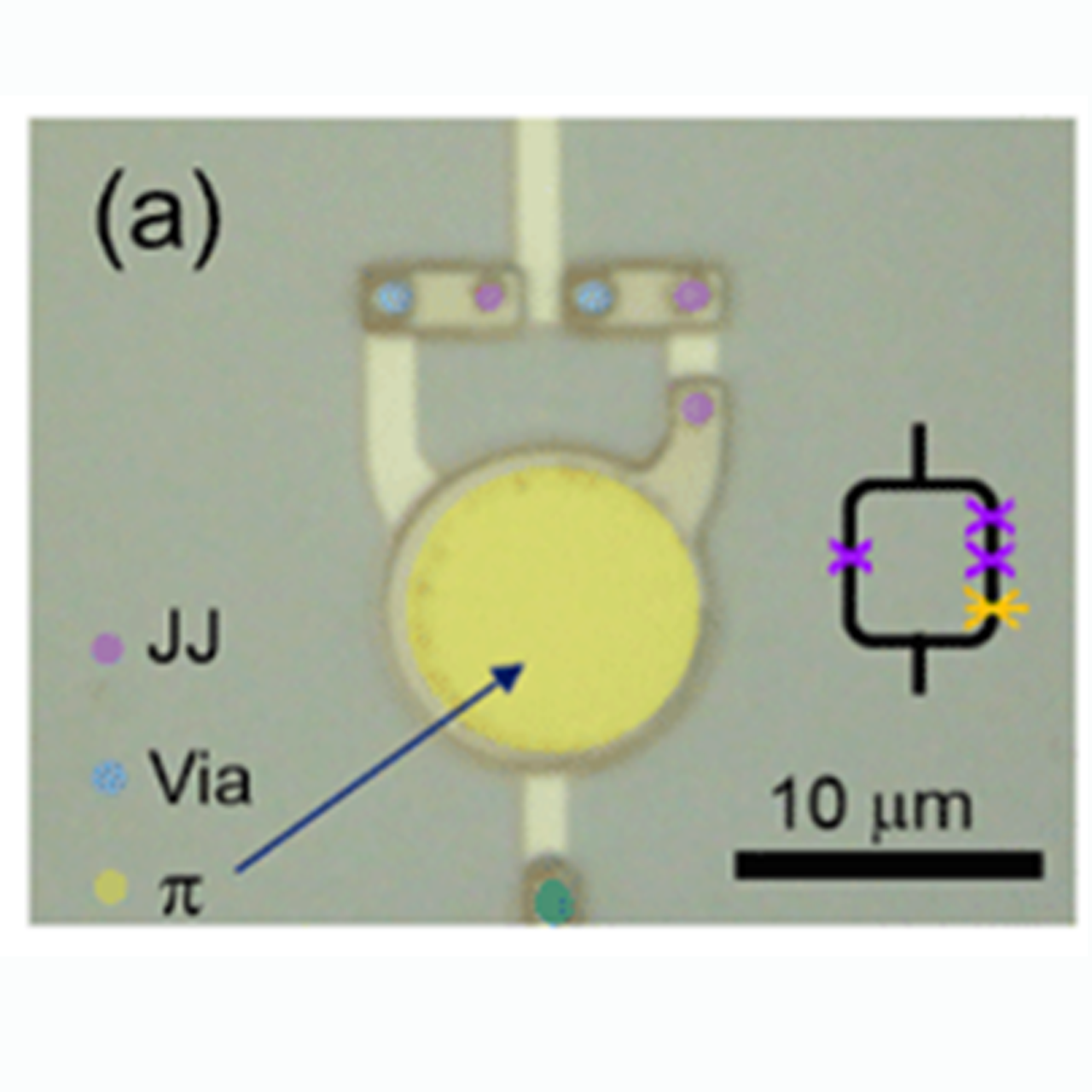
October 15, 2024
World’s First Superconducting Flux Qubit Operating without Magnetic field
-A significant step towards miniaturizing quantum circuits for quantum computers-
The National Institute of Information and Communications Technology (NICT, President: TOKUDA Hideyuki, Ph.D.), NTT Corporation (NTT, President: Mr. SHIMADA Akira), Tohoku University (President: Dr. TOMINAGA Teiji) and the Tokai National Higher Education and Research System Nagoya University (President: Dr. SUGIYAMA Naoshi) succeeded in developing a new type of superconducting flux qubit that operates in zero magnetic field.
Conventional superconducting flux qubits require an external magnetic field generated by bulky coils or an additional local flux bias line near the qubit. The newly developed superconducting flux qubit using a ferromagnetic Josephson junction (named π-junction) demonstrates the realization of a flux qubit operating at zero magnetic field. The qubit lifetime is in the microsecond range, which is the longest among the superconducting qubits with ferromagnetic π-junction. By further improving the ferromagnetic junction material in the future, this π-junction and flux qubit that can operate in zero magnetic field may become essential elements of high-performance quantum devices that are indispensable for quantum computers.
This result was published in the British scientific journal “Communications Materials” on October 11, 2024.
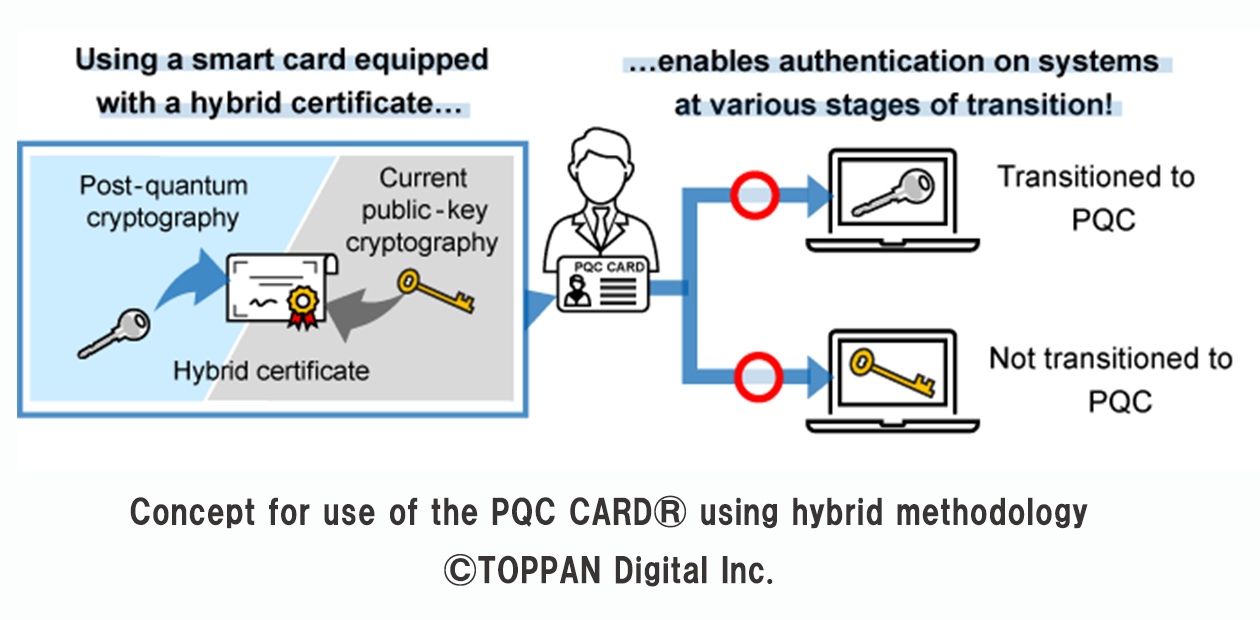
October 7, 2024
TOPPAN Digital, NICT, and ISARA Develop Smart Card System Employing Hybrid Methodology to Support Post-Quantum Cryptography and Current Public-key Cryptography
Facilitating a smooth transition to post-quantum cryptography to ensure the safety and security of social infrastructure
Tokyo - October 7, 2024 - TOPPAN Digital Inc. (TOPPAN Digital), a TOPPAN Group company and wholly owned subsidiary of TOPPAN Holdings Inc. (TYO: 7911), the National Institute of Information and Communications Technology (NICT), and ISARA Corporation (ISARA) have developed SecureBridge?, a smart card system capable of supporting both currently used public-key cryptography and post-quantum cryptography (PQC) that is secure against attacks from quantum computers.
The three organizations have been collaborating on research to equip smart cards with PQC since April 2021. They have now updated the PQC CARDR developed in October 2022 and the private certificate authority to support a digital certificate (hybrid certificate) that facilitates authentication via both PQC and current public-key cryptography.
The effectiveness of the system has been confirmed by applying it to user authentication on the Healthcare Long-term INtegrity and Confidentiality protection System (H-LINCOS), which is implemented on a quantum cryptography network testbed operated by NICT.
TOPPAN Digital, NICT, and ISARA will harness the technology to propel efforts focused on driving practical use of increasingly advanced quantum-secure cloud technologies that enable the secure communication, storage, and use of highly sensitive information in the future.
A part of this work was performed for Council for Science, Technology and Innovation (CSTI) Cross-ministerial Strategic Innovation Promotion Program (SIP), “Promoting Application of Advanced Quantum Technologies to Social Challenges” (Project management agency: QST).
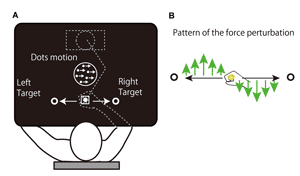
July 3, 2024(Japanese version released on June 13, 2024)
Learning to Act in the Face of Uncertainty
Our brain learns and remembers actions differently based on the level of decision uncertainty
A study published online in the journal Nature Human Behaviour challenges the belief that identical physical actions are governed by the same motor memory, regardless of the decision-making process involved. Researchers from the National Institute of Information and Communications Technology (NICT, President: TOKUDA Hideyuki, Ph.D.) and HONDA R&D Co., Ltd. have discovered that the brain differentiates and stores motor memories based on the level of uncertainty experienced during decision-making.
In a football (soccer) penalty shootout, a player may decide to confidently kick the ball to the right corner upon observing the goalkeeper moving in the opposite direction. Alternatively, the player might make the same kick while being unsure about the goalkeeper’s movement. Although the physical action?kicking the ball to the right?is identical in both scenarios, this new study reveals that the brain tags these actions differently based on the decision uncertainty involved. This discovery suggests that motor memories are not simply repetitions of the same action but are influenced by the cognitive processes leading up to them.
“This was a very surprising finding. This tells us that we cannot treat actions as something totally independent from the cognitive process. Both are combined to make the representation of action,” says HAGURA Nobuhiro, a senior author of the paper.
This research opens up new avenues for developing novel training methods in sports. By associating skill training with various decision-making situations, athletes can enhance their performance by refining their motor memories in context-specific scenarios.
For more information about this study, please visit the Nature Human Behaviour website (https://www.nature.com/articles/s41562-024-01911-x).
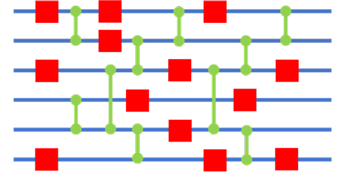
May 9, 2024
Developed Compiler Acceleration Technology for Quantum Computers
- Probabilistic method reduces optimal gate sequence search time by orders of magnitude -
The National Institute of Information and Communications Technology (NICT, President: TOKUDA Hideyuki, Ph.D.), RIKEN (President: GONOKAMI Makoto, Ph.D.), Tokyo University of Science (President: Dr. ISHIKAWA Masatoshi), and the University of Tokyo (President: FUJII Teruo, Ph.D.) succeeded in developing a technique to quickly search for the optimal quantum gate sequence for a quantum computer using a probabilistic method.
To make a quantum computer perform a task, it must use a compiler to convert instructions written in a programming language into a sequence of gate operations on quantum bits, or qubits for short. We previously applied optimal control theory (GRAPE algorithm) to an exhaustive search to develop a method to identify the theoretically optimal gate sequence, but as the number of qubits increases, the number of possible combinations increases. As the number increases explosively, an exhaustive search becomes impossible. For example, if we were to perform an exhaustive search to find the optimal gate sequence for the task of generating an arbitrary quantum state of 6 qubits, it would take longer than the age of the universe using the fastest classical computer currently available.
Therefore, we attempted to develop a method to search for the optimal quantum gate sequence using a probabilistic approach and succeeded. Using the supercomputer Fugaku, it was confirmed and demonstrated that using a new probabilistic random search method, it is possible to search for the optimal quantum gate sequence for the above problem in a few hours.
This new method is expected to speed up quantum computer compilers, become a useful tool for practical quantum computers, and lead to improved performance of quantum computer devices. It can also be applied to optimize quantum information processing at quantum relay nodes, so it is expected to contribute to the realization of the quantum Internet and the reduction of environmental impact.
This result was published in the American scientific journal "Physical Review A" on May 6, 2024.
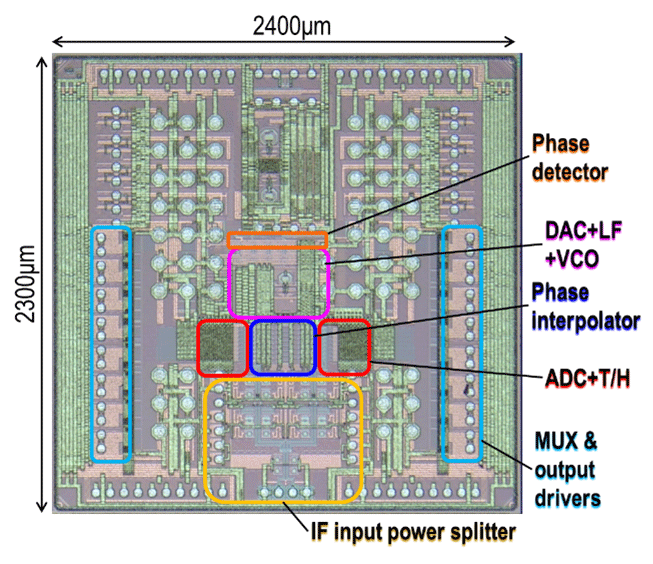
Apr. 23, 2024
THine, NICT and Hiroshima University announced the development of 20Gb/s QPSK Wireless Transmission Technology with the World's First Mixed-Signal Baseband Demodulator Technology
TOKYO (April 23rd, 2024) - THine Electronics, Inc. (Tokyo Stock Exchange: 6769, “THine”), National Institute of Information and Communications Technology (“NICT”), and Hiroshima University, a national university corporation (“Hiroshima University”), jointly announced the successful development of 20 gigabits per second (20Gb/s) QPSK wireless transmission technology with the world's first mixed-signal baseband demodulator technology, which would have a great advantage to achieve more power-efficient wireless data transmission for higher-speed appreciations.THine was responsible for overall design and measurement, Hiroshima University for discussions on design and measurement, and NICT for discussions and measurement assistance.
Details of the technology was presented at the 2024 IEEE custom Integrated Circuits Conference (CICC) held from April 21st to April 24th in Denver, Colorado [1].
The results of this research pave the way of practical circuit implementations by newly-developed mixed-signal architectures for various applications that require higher-performance and more power-efficiency.
・・・read more
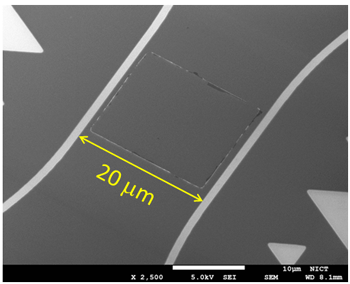
Oct. 30, 2023
Successful Development of the World's First “Superconducting Wide-Strip Photon Detector”
- High-performance photon detection with superconducting strips over 200 times wider than conventional nanostrip -
The National Institute of Information and Communications Technology (NICT, President: TOKUDA Hideyuki, Ph.D.) invented a novel structure in a superconducting strip photon detector that enables highly efficient photon detection even with a wide strip, and succeeded in developing the world's first “Superconducting Wide-Strip Photon Detector (SWSPD)”.
The strip width of the detector is over 200 times wider than that of the conventional Superconducting NanoStrip Photon Detectors (SNSPDs). With this technology, we can solve the problems of low productivity and polarization dependence which have been in the conventional SNSPDs. Our new SWSPD is expected to be applied into various advanced technologies such as quantum information communication and quantum computers, enabling early social implementation of these advanced technologies.
This result was published in the US scientific journal “Optica Quantum” on Thursday, October 26, 2023.
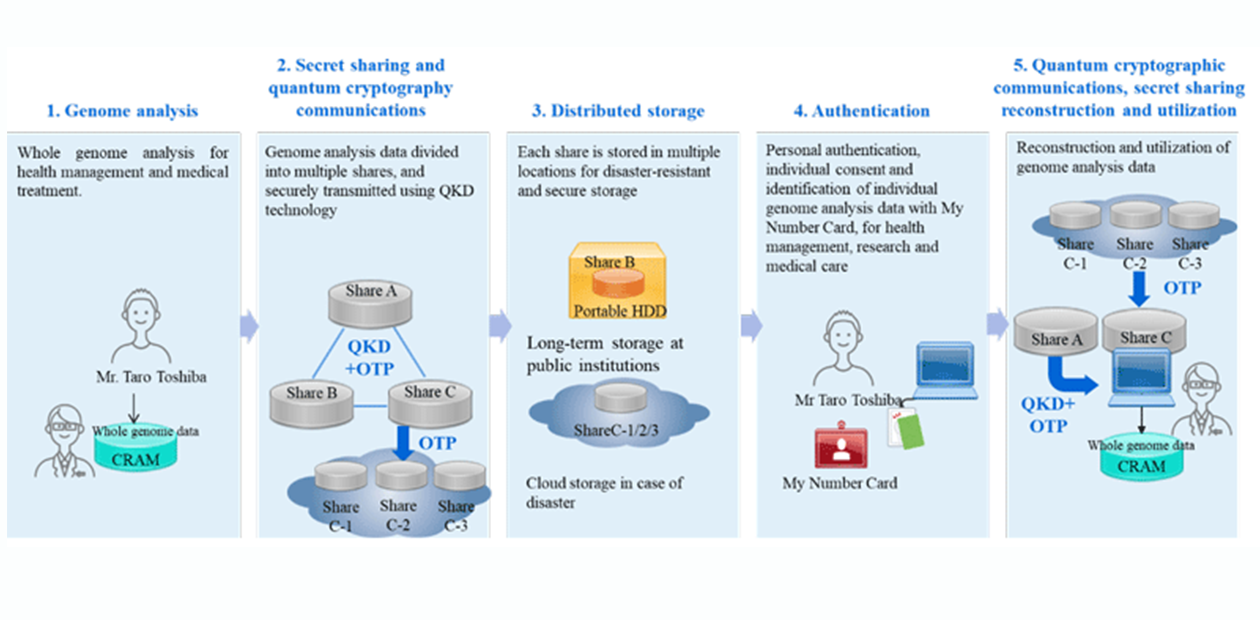
Dec. 28, 2022
(Japanese version released on Dec. 8, 2022)
Toshiba, ToMMo, Tohoku University Hospital, and NICT Link Quantum Security and Personal Authentication, Successfully Deliver Secure Personalized Healthcare Use Case
Toshiba Corporation, Tohoku University Tohoku Medical Megabank Organization (ToMMo), Tohoku University Hospital, and the National Institute of Information and Communications Technology (NICT) have demonstrated the world's first*1personalized healthcare*2 system that stores genome data from many individuals in multiple locations and utilizes them for medical treatment and healthcare using an information theoretically secure method based on the quantum key distribution (QKD) link, the secret sharing system and personal authentication technology. This system is theoretically secure against the threat of store now and decrypt later attacks, prevents data leaks, falsification, and loss of genome data. In this system, data decryption and reconstruction*3 are performed by using personal authentication and individual consent. The system is expected to contribute to the realization and spread of personalized healthcare.
A part of this work was performed for Council for Science, Technology and Innovation (CSTI), Cross-ministerial Strategic Innovation Promotion Program (SIP), “Photonics and Quantum Technology for Society 5.0” (Funding agency: QST).
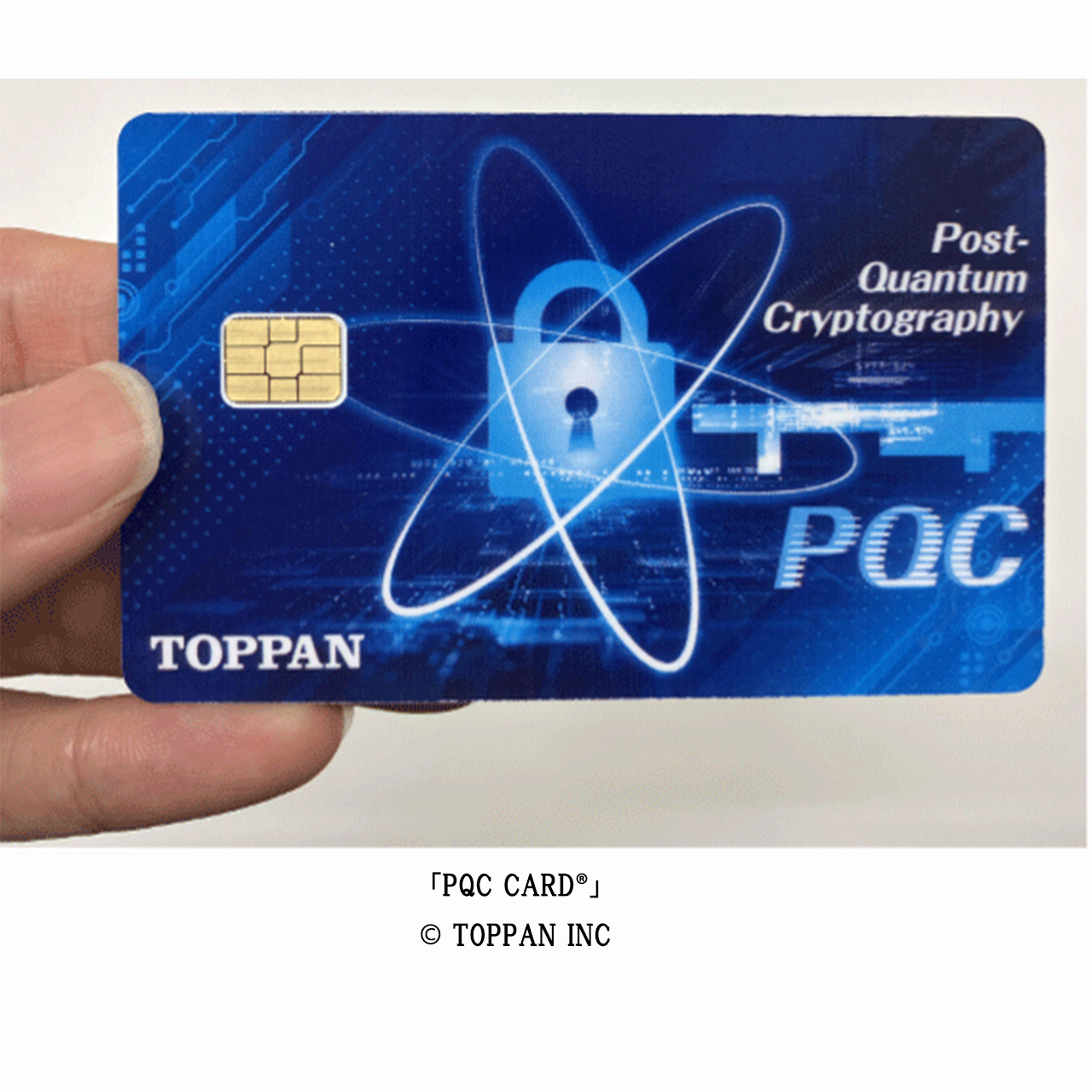
Oct.26, 2022
(Japanese version released on Oct.24,2022)
Toppan and NICT Establish World’s First Technology for Equipping Smart Card Systems with Post-Quantum Cryptography Selected by NIST
Effectiveness confirmed in pilot test on secure healthcare data system
Tokyo - October 24, 2022 -Toppan (TYO: 7911), a global leader in communication, security, packaging, decor materials, and electronics solutions, and the National Institute of Information and Communications Technology (NICT) have developed PQC CARDR, the world’s first smart card equipped with post-quantum cryptography, which is difficult for even a quantum computer to crack. The organizations have also successfully confirmed effectiveness by applying PQC CARDR to control access to H-LINCOS, a system for the secure long-term storage and exchange of healthcare data.
PQC CARDR uses CRYSTALS-Dilithium, a next-generation digital signature algorithm selected as a potential standard technology by the U.S. National Institute of Standards and Technology (NIST) in July this year. PQC CARDR was developed in collaboration with ISARA Corporation, a company with cutting-edge post-quantum cryptography technologies.
Toppan and the NICT will take advantage of this technology to advance development of quantum secure cloud technology that enables the secure communication, storage, and use of highly sensitive information. Going beyond smart card security, the two organizations will also target the establishment of safe and secure social infrastructure based on the creation of fundamental technologies that ensure security for day-to-day internet-based activities, including email, online shopping, cashless transactions, and online banking.
Part of the research was supported by two Japanese government programs: the Cabinet Office’s Cross-ministerial Strategic Innovation Promotion Program (SIP) “Photonics and Quantum Technology for Society 5.0” and the Ministry of Internal Affairs and Communications’ Research and Development for Construction of a Global Quantum Cryptography Network (JPMI00316).

Sep.2, 2022
(Japanese version released on Sep.1,2022)
New Method to Systematically Find Optimal Quantum Operation Sequences for Quantum Computers Developed
The National Institute of Information and Communications Technology (NICT, President: TOKUDA Hideyuki, Ph.D.), Keio University (President: ITOH Kohei, Ph.D.), Tokyo University of Science (President: Dr. ISHIKAWA Masatoshi), The University of Tokyo (President: Dr. FUJII Teruo), succeeded for the first time in developing a method for systematically finding the optimal quantum operation sequence for a quantum computer.
In order for a quantum computer to perform a task, we need to write a sequence of quantum operations. Until now, computer operators have written their own quantum operation sequences based on existing methods (recipes). What we have developed this time is a systematic method that applies optimal control theory (GRAPE algorithm) to identify the theoretically optimal sequence from among all conceivable quantum operation sequences.
This method is expected to become a useful tool for medium-scale quantum computers and is expected to contribute to improving the performance of quantum computers and reducing environmental impact in the near future.
This result was published in the American scientific journal "Physical Review A" on August 23, 2022.
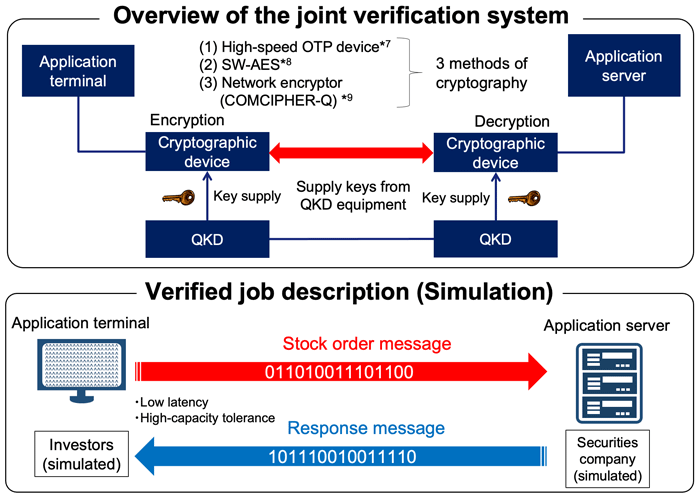
Feb.18, 2022
(Japanese version released on Jan.14,2022)
Successful Joint Verification Test for Low Latency Transmission of Highly Confidential Data Using Quantum Cryptography for Large-volume Financial Transaction Data
TOKYO-Nomura Holdings, Inc. (President and Group CEO, Kentaro Okuda, hereinafter Nomura HD), Nomura Securities Co., Ltd. (Representative Director and President, Kentaro Okuda, hereinafter Nomura Securities), National Institute of Information and Communications Technology (President, Hideyuki Tokuda, Ph.D., hereinafter NICT), Toshiba Corporation (Representative Executive Officer and President and Chief Executive Officer, Satoshi Tsunakawa, hereinafter Toshiba), and NEC Corporation (President and CEO, Takayuki Morita, hereinafter NEC) have jointly verified the effectiveness and practicality of quantum cryptography for future social implementation using stock trading operations as a use case, where high-speed, large-volume, low-latency data transmission is strictly required. The test which started in December 2020 is the first in Japan to verify the low-latency and large-volume transmission tolerance of highly secure data transmission conforming to the message transmission format (FIX format), which is a standard format used in actual stock trading operations. As a result, in our assumed use case, we were able to confirm the following two points: (i) the throughput is maintained at a level of a conventional system, even if quantum cryptography is applied, and (ii) even if a large number of stock orders are placed, highly secure and high-speed quantum cryptographic communication can be realized without depleting cryptographic keys. The success of this test is expected to accelerate the social implementation of quantum cryptography, including a broad range of sectors other than finance.
The test was conducted as part of the Cross-ministerial Strategic Innovation Promotion Program (SIP) "Photonics and Quantum Technology for Society 5.0" (Funding Agency: National Institutes for Quantum Science and Technology) led by the Cabinet Office.
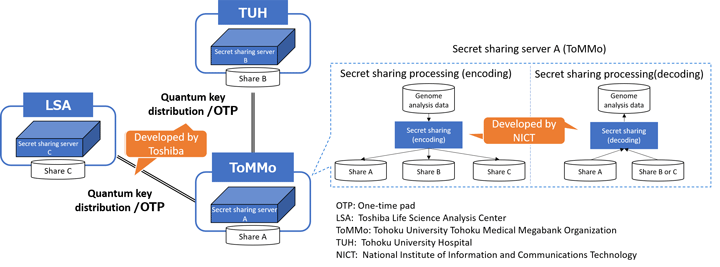
Oct.7,2021
(Japanese version released on Aug. 26, 2021)
Toshiba, ToMMo, Tohoku University Hospital, and NICT Demonstrate the Use of Quantum Cryptography Communication and Secret Sharing Technologies for Distributed Storage of Genome Analysis Data
-Contributing to safe data management in the fields of genomic research and medicine-
Toshiba Corporation, Tohoku University Tohoku Medical Megabank Organization (ToMMo), Tohoku University Hospital, and the National Institute of Information and Communications Technology (NICT) have developed a distributed storage technology that combines quantum cryptography communication and secret sharing technologies, successfully demonstrating the world’s first experimental large-scale1 genome analysis data backup to multiple sites2. These technologies will allow data backup that prevents data leaks and tampering over long periods and are expected to contribute to safe data management in the fields of genomic research and medicine.
A part of this work was performed for Council for Science, Technology and Innovation (CSTI), Cross-ministerial Strategic Innovation Promotion Program (SIP), “Photonics and Quantum Technology for Society 5.0” (Funding agency: QST). Toshiba, ToMMo, Tohoku University Hospital, and NICT will present the details of these technologies and their experimental demonstration at the 11th International Conference on Quantum Cryptography (QCrypt 2021).
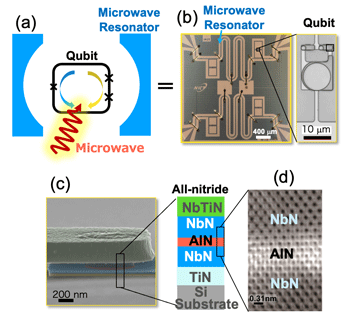
Sep.20,2021
All-nitride Superconducting Qubit Made on a Silicon Substrate
- New material platform for large-scale integration of superconducting qubits -
Researchers at the National Institute of Information and Communications Technology (NICT, President: TOKUDA Hideyuki, Ph.D.), in collaboration with researchers at the National Institute of Advanced Industrial Science and Technology (AIST, President: Dr. ISHIMURA Kazuhiko) and the Tokai National Higher Education and Research System Nagoya University (President: Dr. MATSUO Seiichi) have succeeded in developing an all-nitride superconducting qubit using epitaxial growth on a silicon substrate that does not use aluminum as the conductive material. This qubit uses niobium nitride (NbN) with a superconducting transition temperature of 16 K (-257 °C) as the electrode material, and aluminum nitride (AlN) for the insulating layer of the Josephson junction. It is a new type of qubit made of all-nitride materials grown epitaxially on a silicon substrate and free of any amorphous oxides, which are a major noise source. By realizing this new material qubit on a silicon substrate, long coherence times have been obtained: an energy relaxation time (T1) of 16 microseconds and a phase relaxation time (T2) of 22 microseconds as the mean values. This is about 32 times T1 and about 44 times T2 of nitride superconducting qubits grown on a conventional magnesium oxide substrate. By using niobium nitride as a superconductor, it is possible to construct a superconducting quantum circuit that operates more stably, and it is expected to contribute to the development of quantum computers and quantum nodes as basic elements of quantum computation. We will continue to work on optimizing the circuit structure and fabrication process, and we will proceed with research and development to further extend the coherence time and realize large-scale integration. These results were published in the British scientific journal "Communications Materials" on September 20, 2021 at 18:00 (Japan standard time). ・・・read more
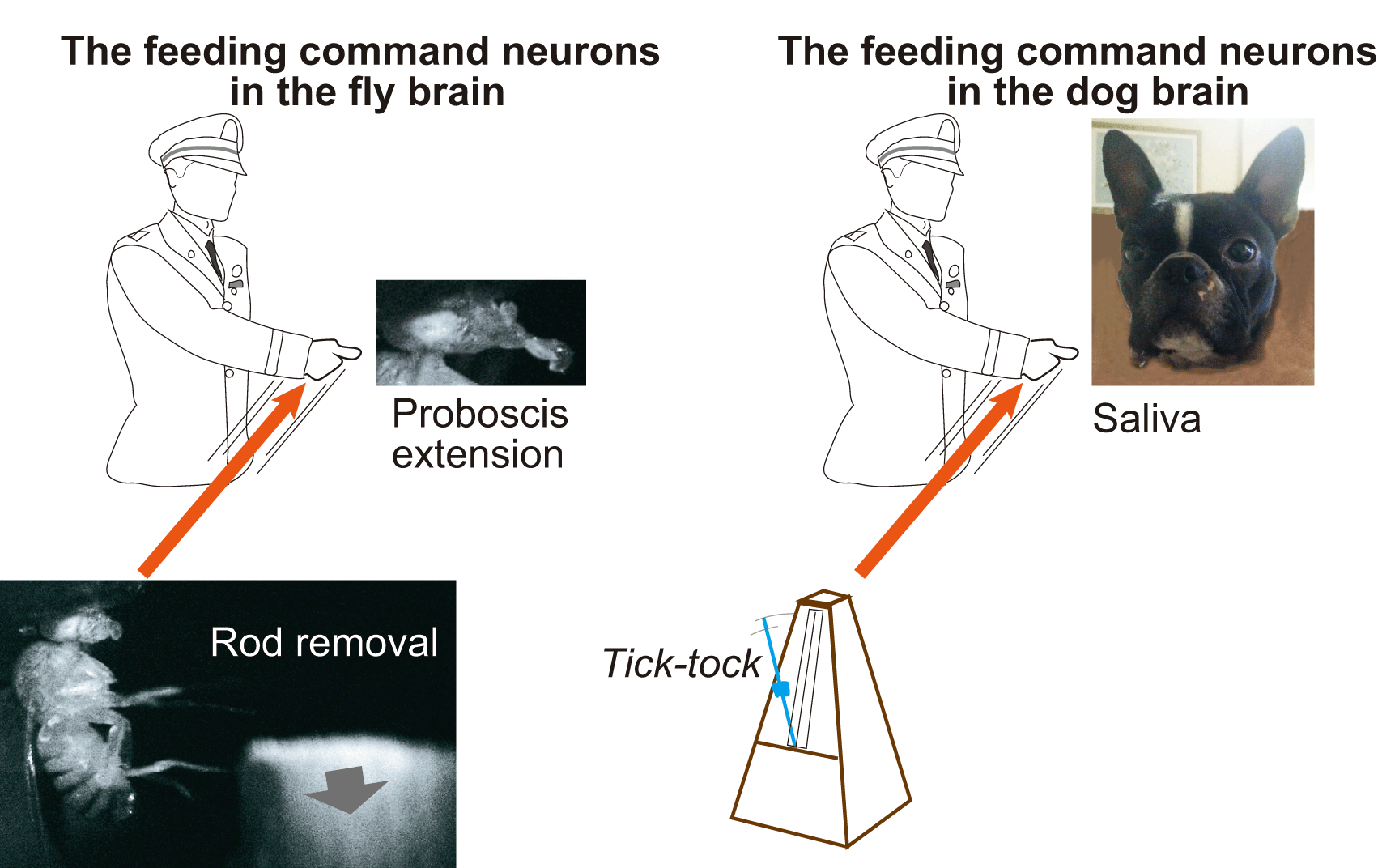
Aug.11,2021
(Japanese version released on Aug.5,2021)
Neural Correlate of Pavlovian Conditioning
-Hijacking the command neuron governs Pavlovian conditioning-
The group lead by Executive Researcher, YOSHIHARA Motojiro, and Senior Researcher, SAKURAI Akira, at the National Institute of Information and Communications Technology, Kobe (NICT, President: TOKUDA Hideyuki, Ph.D.) unraveled a neural correlate of Pavlovian conditioning. The feeding command neuron, which was discovered by the same group in the brain of fruit flies (Nature, 2013)1, was found to be hijacked by an originally-independent stimulus, leading to the conditioned response. Furthermore, the experimental system of Pavlovian conditioning made possible real-time observation of cell-cell connection for memory formation.
These results were published in Current Biology at 11 AM on August 4 (US Eastern Standard Time) in 2021.
・・・read more
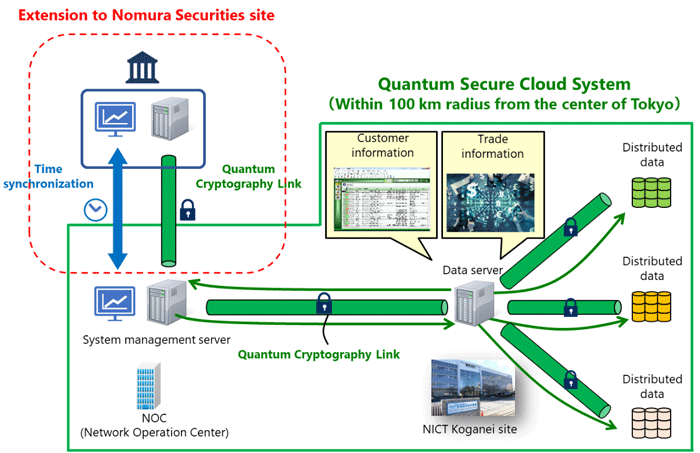
Jan.18,2021
(Japanese version released on Dec.21,2020)
Beginning Joint Verification Tests on Quantum Cryptography Technology to Enhance Cybersecurity in the Financial Sector
-Testing practicality in large-capacity and low-latency communications in stock transactions-
TOKYO?Nomura Holdings, Inc. (Representative Executive Officer and President, Kentaro Okuda, hereinafter “Nomura HD”), Nomura Securities Co., Ltd. (Representative Director and President, Toshio Morita, hereinafter “Nomura Securities”), National Institute of Information and Communications Technology (President, Hideyuki Tokuda, Ph.D. hereinafter “NICT”), Toshiba Corporation (Representative Executive Officer and President and CEO, Nobuaki Kurumatani), and NEC Corporation (President and CEO, Takashi Niino, hereinafter “NEC”) will jointly verify the effectiveness and practicality of quantum cryptography technology in order to strengthen the security of data communications and storage in the financial sector. The tests will commence in December 2020. ・・・read more
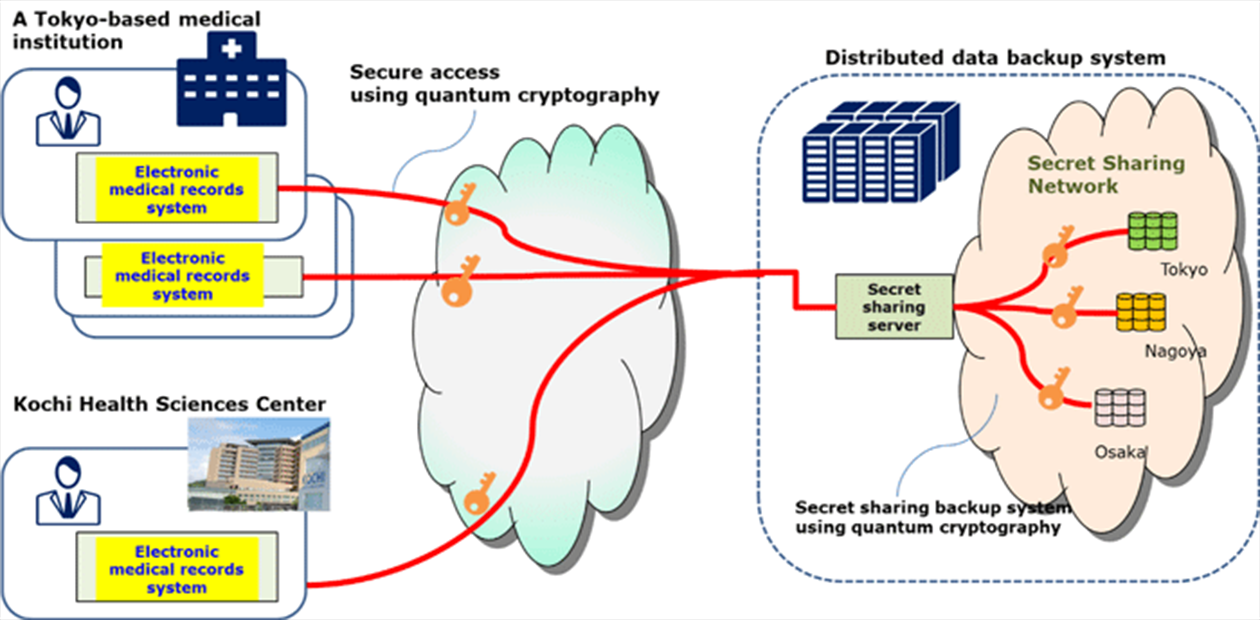
Nov.20,2020
(Japanese version released on Oct.22,2020)
NEC, NICT and ZenmuTech use quantum cryptography to encrypt, transmit and backup electronic medical records
-Achieving secure and real-time cross-references between medical institutions-
Tokyo, October 22, 2020 - NEC Corporation (NEC), National Institute of Information and Communications Technology (NICT) and ZenmuTech, Inc have succeeded in demonstrating a system that uses quantum cryptography to encrypt and securely transmit dummy electronic medical records compatible with SS-MIX standardized storage and to back the data up with a secret sharing technology over a wide area network. In addition, the cross-referencing of dummy data between this system and Kochi Health Sciences Center has also been demonstrated. ・・・read more
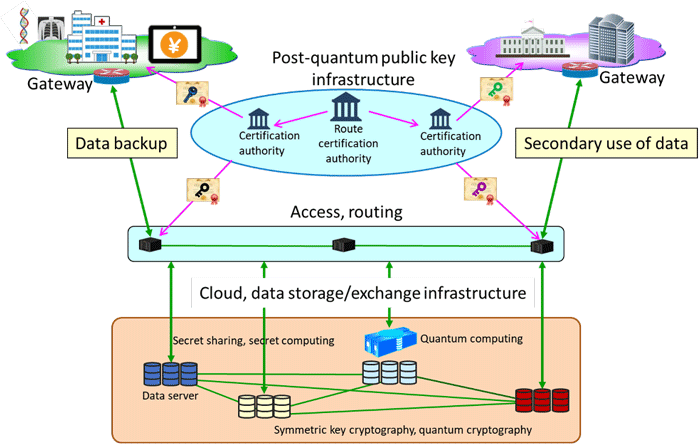
Oct.19,2020
Toppan, NICT, QunaSys, and ISARA Launch Collaboration to EstablishQuantum Secure Cloud Technology
Secure communication, storage, and use of data enabled by quantum computing and quantum cryptography technologies
Tokyo — October 19, 2020 — Toppan Printing (Toppan) (TSE:7911), the National Institute of Information and Communications Technology (NICT), QunaSys Corporation (QunaSys), and ISARA Corporation (ISARA) have announced the launch of a collaboration targeting the establishment of quantum secure cloud technology that will enable advanced information processing and secure communication, storage, and use of data.・・・read more
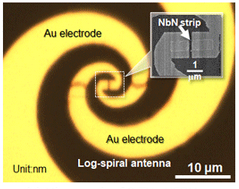
Sep.16,2020
Development of High-sensitivity, Wide-IF Band Heterodyne Receiver in Terahertz Frequency Range
-Realized by NICT's original superconducting device structure using magnetic materials-
The National Institute of Information and Communications Technology (NICT, President: TOKUDA Hideyuki, Ph.D.) has developed a unique superconducting hot electron bolometer mixer (HEBM) using magnetic materials. As a result, the noise of the 2 THz band heterodyne receiver has been reduced and the wide IF band has been achieved. The 2 THz band HEBM produced this time has a low noise performance of about 570 K (DSB), which is about 6 times the quantum noise limit, and a wide IF band characteristic of about 6.9 GHz, which is about 3 GHz larger than the conventional structure HEBM. Both of these are world-class performance.・・・read more
